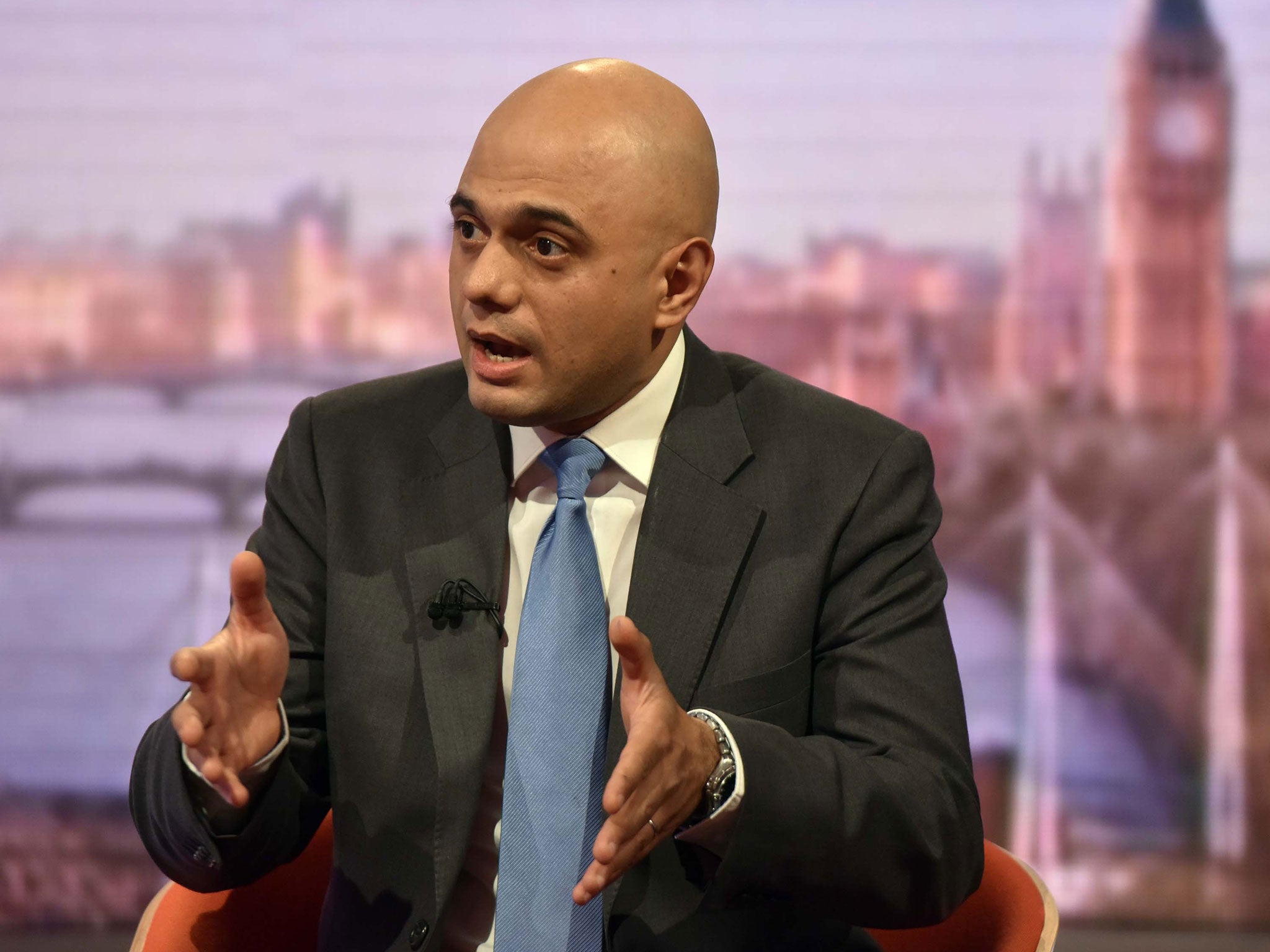Google’s £130m tax deal ‘wasn’t a glorious moment’, Sajid Javid admits
The Business Secretary said he shared the feeling of injustice over the so-called 'sweetheart' deal

Your support helps us to tell the story
From reproductive rights to climate change to Big Tech, The Independent is on the ground when the story is developing. Whether it's investigating the financials of Elon Musk's pro-Trump PAC or producing our latest documentary, 'The A Word', which shines a light on the American women fighting for reproductive rights, we know how important it is to parse out the facts from the messaging.
At such a critical moment in US history, we need reporters on the ground. Your donation allows us to keep sending journalists to speak to both sides of the story.
The Independent is trusted by Americans across the entire political spectrum. And unlike many other quality news outlets, we choose not to lock Americans out of our reporting and analysis with paywalls. We believe quality journalism should be available to everyone, paid for by those who can afford it.
Your support makes all the difference.A Cabinet minister has conceded that the £130m Google tax deal was not a “glorious moment”, despite Chancellor George Osborne having hailed it as a major success.
Sajid Javid, the Business Secretary, said he shared the feeling of injustice over the so-called “sweetheart” deal struck between HMRC and the US tech giant. Google has earned an estimated £7.2bn profit in the UK over the past decade.
Mr Osborne had welcomed the deal struck following years of negotiations with the company, but the settlement was quickly condemned as trivial by the Opposition amid reports that authorities in other European countries were seeking far higher tax payments despite hosting smaller Google operations.
“It wasn’t a glorious moment, when people look at these issues,” Mr Javid said. “But it is important, I think, to talk about also what the Government is doing.”
Google has been accused of reducing its UK tax bill by shunting profits earned here to low-tax jurisdictions including Ireland.
“I speak with thousands of companies, small and medium-sized as well as of course large companies, and there is a sense of injustice with what they see,” Mr Javid told the Andrew Marr Show.
“They do look at this and they say, ‘Look, I don’t operate all these multiple jurisdictions around the world, I can’t shift profits around. What about me? Where’s the level playing field?’ and I share that sense and the sort of sense of unfairness that exists.”
Mr Javid’s comments came as a Google executive was unable to say what its profit in Britain was over the period, or how many times senior figures from the company had met ministers. Peter Barron told the BBC that working out how much profit was earned in Britain was “quite a business” and had been the subject of six years of audits.
Google is expected to announce on 1 February that £30bn of profits from non-US sales are held in the tax haven of Bermuda but Mr Barron was unable to say how much of that came from Britain.
Meanwhile Britain has been privately lobbying the EU to remove Bermuda, a British overseas territory, from a list of 30 blacklisted tax havens facing sanctions, the Observer reported.
Join our commenting forum
Join thought-provoking conversations, follow other Independent readers and see their replies
Comments